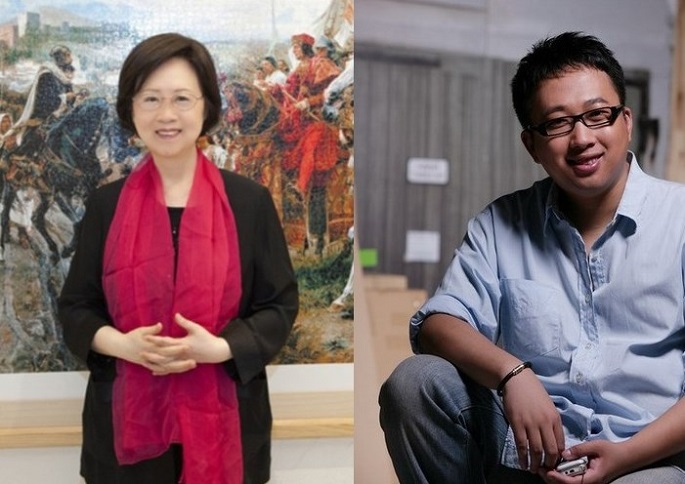What might one do if he or she receives 5 million yuan?
Perhaps go on a shopping spree, try fancy restaurants, pay debts, travel here and there. The list could go on.
For Taiwan-based novelist Chiung Yao, the extra money could very well be used to fund a cause that would teach and encourage everyone in general not to plagiarize anyone’s work.
Thus, the Chiung Yao Culture Fund was born.
Chiung attended the opening event of her latest project on Jan. 27 in Shanghai, reported Women of China.
The money came from winning a lawsuit. Yes, the novelist herself became a victim of plagiarism.
She sued Chinese screenwriter and producer Yu Zheng for plagiarism in 2014 and won that same year in December, according to CRI English.
Calling the decision of the court as a “landmark ruling,” CRI English also reported that the court demanded Yu to apologize to Chiung.
Yu, 37, wrote and produced the 2014 historical TV series, “Palace 3: The Lost Daughter.” Hunan Television aired its pilot episode on April 7.
Chiung claimed that its storyline “almost completely copied” the plot of her novel, “Mei Hua Lao” (“Plum Blossom Scar”), which was made into a TV series and broadcast in 1993, according to Women of China.
Born Chen Zhe in Chengdu, Sichuan Province, in 1938, Chiung moved with her family to Taiwan in 1949.
The 77-year-old screenwriter-lyricist-producer published her first novel, “Chuangwai” (“Outside the Window”), at the tender age of 16. It narrates the romance shared between a student and a teacher.
The novel captured the interest of one Jobi L. Petty. She penned a book entitled, “Qiong Yao's Chuang Wai: A Study of a Popular Taiwan Novel” and was published by New York-based Cornell University in Aug. 1989.
Incidents of plagiarism made news one time too many.
Four of the 23 students from Modern College in Hong Kong found guilty of plagiarism said that they only obeyed the instruction of their teacher to simply copy the information they could get online without any more citing references, reported South China Morning Post in 2013.
In an article entitled “China’s Plagiarism Problem” published online in 2010, Forbes said that when Chinese students are given assignments in English, it will be “common” for them “to rely upon translating Chinese sources into English and passing it off as their own work, or simply copying and pasting directly from Wikipedia.”
Wang Hongtao, former deputy dean at Tongji University, admitted copying a test “for convenience.” He gave the test to his students as their final exam, reported Shanghai Daily in 2010.
Wang resigned from the university.
Zhou Zude, former president of Wuhan University of Technology, allegedly copied the work of Chilean scientist Roberto Cardenas, reported China Daily in 2009.
Huang Qing, former vice president of Southwest Jiaotong University in Chengdu, plagiarized Chinese-Australian economist Yang Xiaokai’s (1948-2004) “Principles of Economics,” reported Danwei in 2009.
The school’s academic commission gave Huang a guilty verdict. The commission said that he took “a fair amount” of his doctorate dissertation from Yang’s paper minus citations.
Now that Chiung Yao Culture Fund was launched, such undertaking may possibly aid in preventing plagiarism in the academe, in the entertainment industry and in all other areas.



























